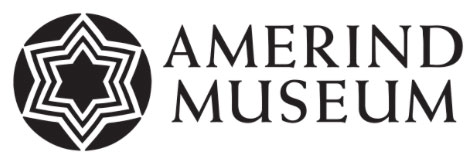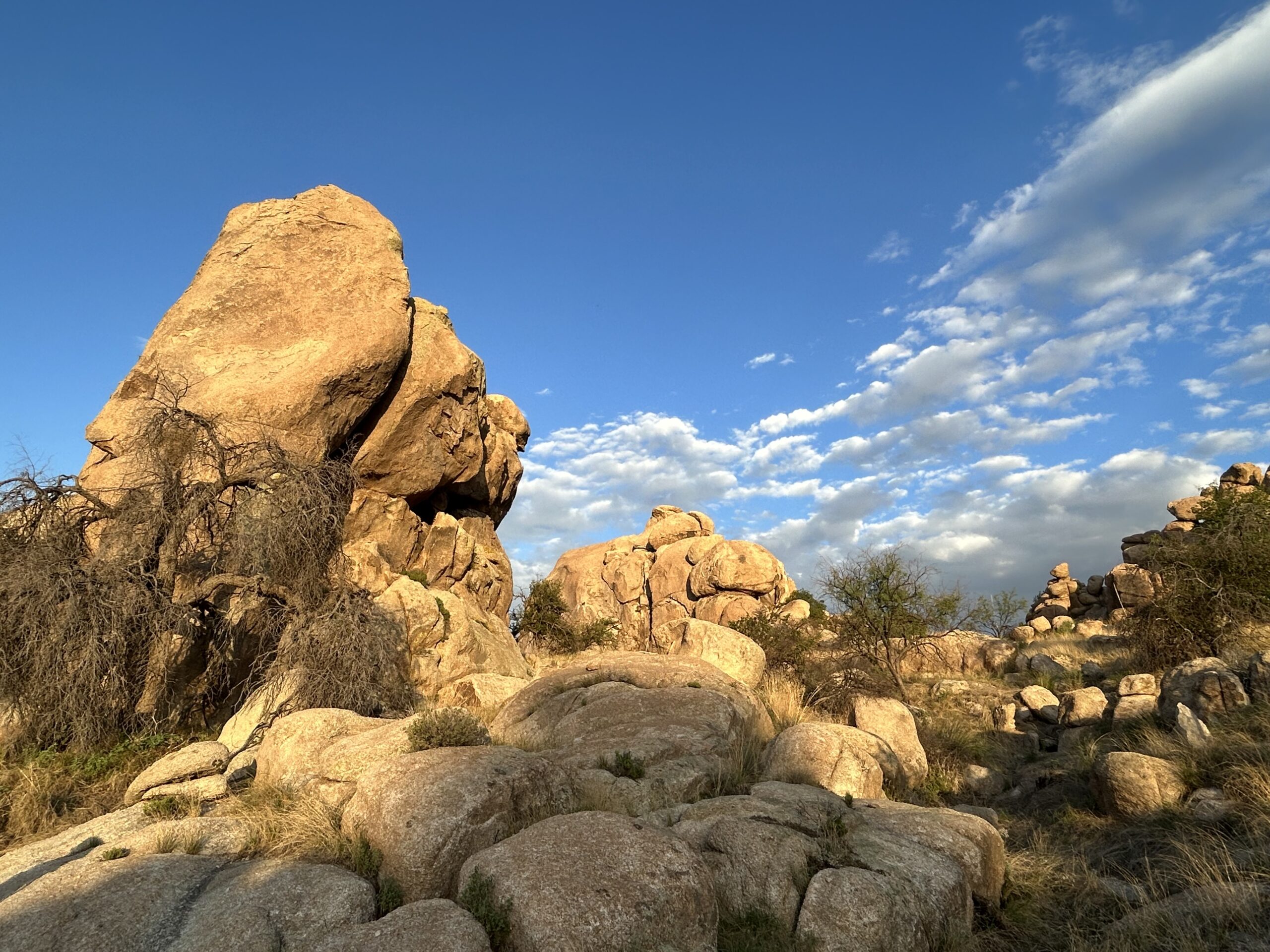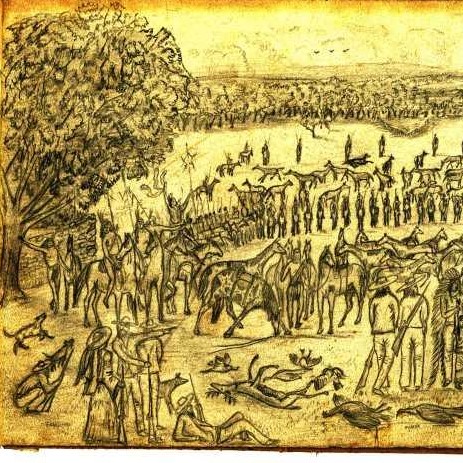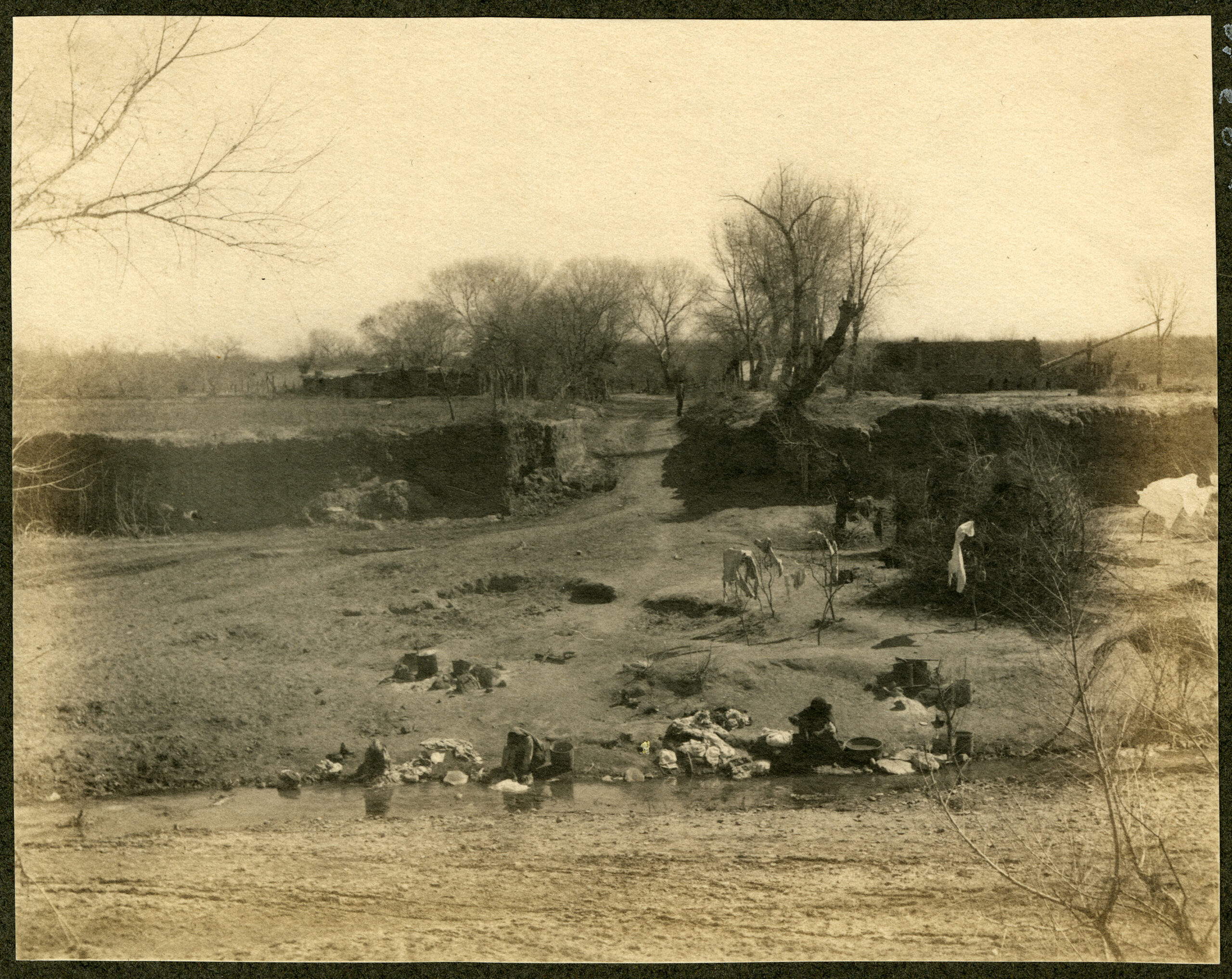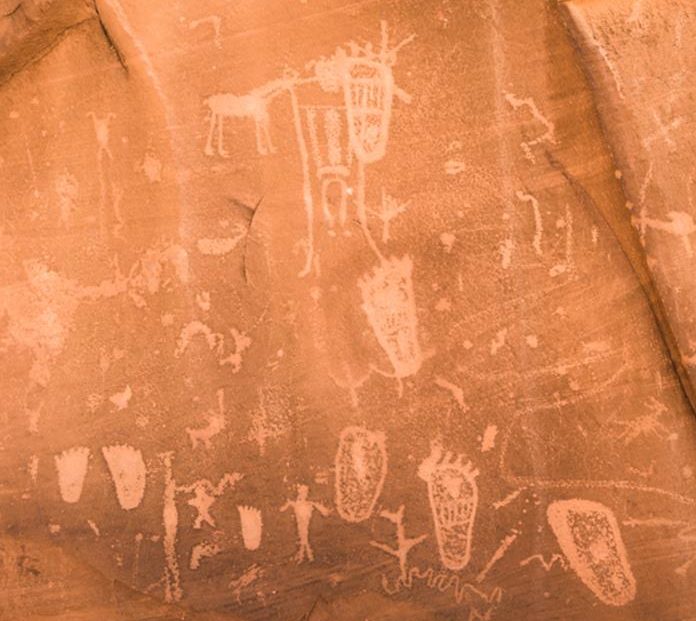Free to all Amerind Members
Continue readingAmerind Free Online Talk: Comanches, Captives, Germans: Transactions on the Texas Frontier, 1847 with Daniel J. Gelo & Christopher J. Wickham
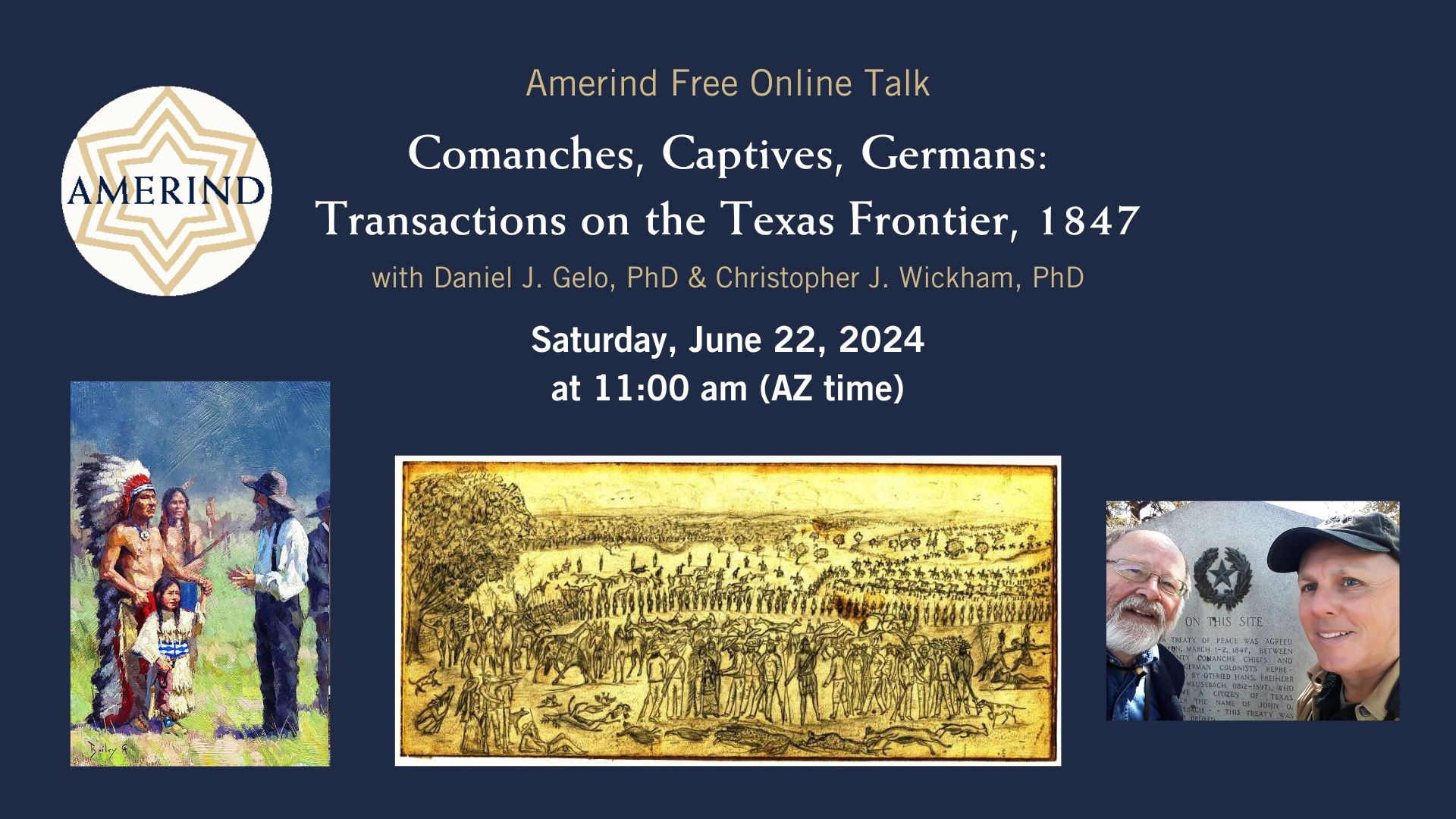
Free Online Talk
Comanches, Captives, Germans: Transactions on the Texas Frontier, 1847
with Daniel J. Gelo, PhD & Christopher J. Wickham, PhD
Saturday, June 22, 2024
11:00 am – Arizona Time
In 2021, three finely worked sketches dating back to the middle of the nineteenth century were brought to the attention of scholars studying the relationship between German settlers and Comanche Indians. Seemingly the work of one artist, and (with one exception) never published, the sketches feature Comanches, Germans, a captive girl, a wagon train, the landscape and wildlife of the Texas Hill Country, and dynamic scenes of cultural contact. Who was the girl? Who were the Comanches involved? Who were the Germans? Where and when did this captive exchange take place? What do we make of the rich Indian and German cultural details that the artist includes? How can we understand his work—as art, as data about Comanche life and customs, and as documentation of a specific cultural encounter? And, of course, who was the artist, and how important is his work? Trying to find answers to these questions, the presenters will examine the drawings in detail and decode information placed by the artist.
Daniel J. Gelo is Dean and Professor of Anthropology Emeritus and former Stumberg Distinguished University Chair at the University of Texas at San Antonio. Gelo holds Ph.D., M.Phil., M.A., and B.A. degrees in anthropology from Rutgers University. His publications include: Comanche Vocabulary (University of Texas Press, 1995), Comanches in the New West, 1896-1908 (with Stanley Noyes, University of Texas Press, 1999), Texas Indian Trails (with Wayne L. Pate, Republic of Texas Press, 2003), Comanches and Germans on the Texas Frontier: The Ethnology of Heinrich Berghaus (with Christopher J. Wickham, Texas A&M University Press, 2018), and Indians of the Great Plains (Second Edition, Routledge, 2019). He has won the UTSA President’s Distinguished Achievement Award, the University of Texas System Chancellor’s Council Outstanding Teaching Award, and the Presidio La Bahia Award for best book on early Texas history.
Christopher J. Wickham is Professor Emeritus of German at the University of Texas at San Antonio. He earned his Ph.D. at the University of Wisconsin-Madison. Having taught at the Universität Regensburg, Germany, Allegheny College, PA, and the University of Illinois at Chicago he moved to UTSA in 1991. Wickham retired from teaching in 2017. His research focuses on German literature and culture, and most recently on the interaction between German settlers and Comanches in 19th-century Texas. He authored a monograph on the dialect of Diendorf, Bavaria, (1987) and books on the notion of Heimat (1999) and Comanches and Germans in Texas (2018, with Daniel J. Gelo) which won the Presidio La Bahia Award for best book on early Texas history. Comanches, Captives, and Germans, a book coauthored with Dan Gelo, Hoppy Hopkins and Bryden Moon, appeared in January 2023. He is currently working with Dan Gelo on a study of 19th century Texas botanist and newspaperman Ferdinand Lindheimer.
Book Publication:
Gelo, Daniel J., C. B. “Hoppy” Hopkins, Christopher J. Wickham, and Bryden Moon.
Comanches, Captives, and Germans: Wilhelm Friedrich’s Drawings from the Texas Frontier. Kerrville, TX: State House Press, 2022.
https://www.tamupress.com/book/9781649670137/comanches-captives-and-germans/
To register for this free online event, visit: https://bit.ly/Amerindonline06222024GeloWickham
Amerind Free Online Lecture: Caretakers of the Land: History of Land and Water in the San Xavier Community with Jacelle Ramon-Sauberan, PhD
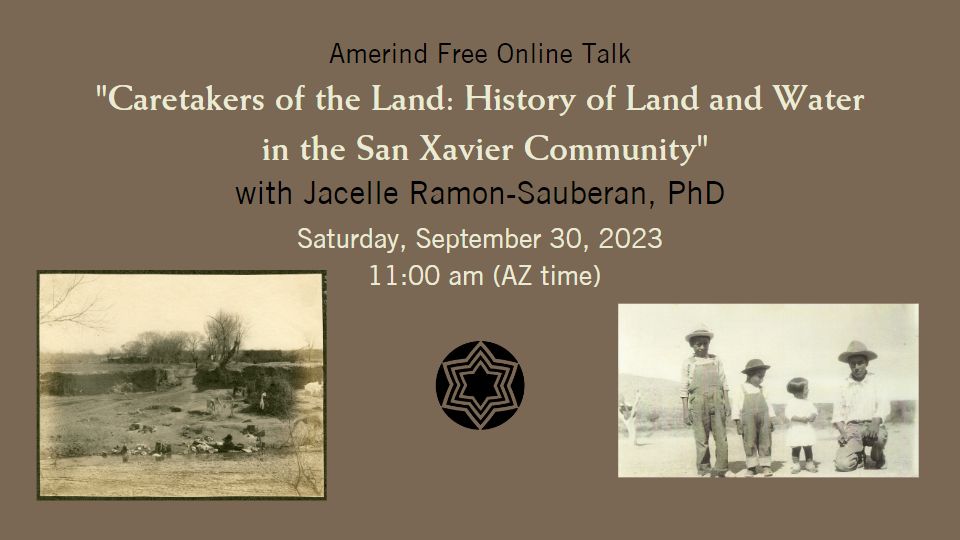
Amerind Free Online Lecture
Caretakers of the Land: History of Land and Water in the San Xavier Community
with Jacelle Ramon-Sauberan, PhD
Saturday, September 30, 2023, 11:00 am – Arizona Time
San Xavier del Bac is known as the White Dove of the Desert, but not many know the rich history surrounding the community called Wa:k (where the water goes in). Long before our urban centers and city lights lit up the dark desert skies, the Tohono O’odham were cultivating and shaping the land with abundant agriculture—from squash and beans to corn and cotton.
For generations they passed down their rich knowledge and culture grown from their connection to the desert. Join us for a program with Dr. Jacelle Ramon-Sauberan as she shares her knowledge about the history and culture of her people, the Wa:k O’odham.
Dr. Jacelle Ramon-Sauberan is Tohono O’odham and from the San Xavier District. She serves as faculty in the Tohono O’odham Studies Program at Tohono O’odham Community College. Ramon-Sauberan earned her PhD in American Indian Studies with a minor in Journalism at the University of Arizona in May 2023. Her research focuses on the history of land and water in the San Xavier District and she has written for news publications across the US including Indian Country Today. Ramon-Sauberan is also a communication specialist for the National Science Foundation’s AURA/NOIRLab closely working with Kitt Peak National Observatory.
To Register Visit: https://bit.ly/AmerindOnline09302023
Free Online Lecture Via Zoom: Migration: A View from the Southwest with Catherine M. Cameron, PhD
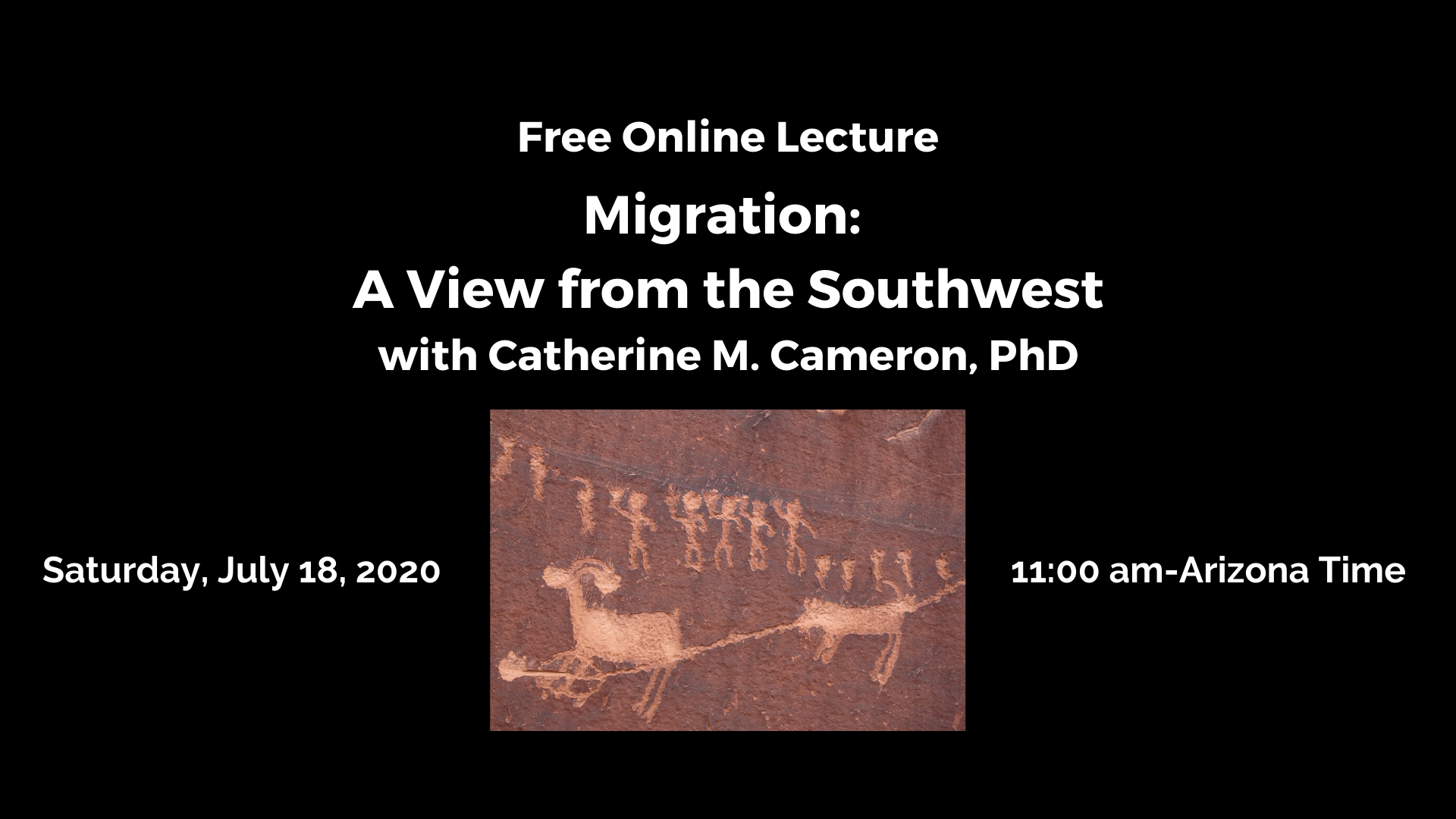
Free Online Lecture Via Zoom:
Migration: A View from the Southwest with Catherine M. Cameron, PhD
Saturday, July 18, 2020, 11:00 am, Arizona time
The Southwest is full of ancient places – empty towns and villages. Where did people go and why? Perhaps because of its remarkably preserved sites, migration has been of long-standing interest to Southwestern archaeologists and others. This talk will explore the post-13th century Southwestern migrations and the variety of ways that migrants expressed their identity in their new homes. I will then move beyond the Southwest to argue that movement was frequent for people living ancient small-scale societies and that to understand movement in these early times we need new models of how and why people moved.
Dr. Catherine Cameron is a professor emerita with the University of Colorado, Boulder. An archaeological leader in the Americas, Professor Cameron has worked in Chaco Canyon, northeastern Arizona, and southeastern Utah.
This online program is free, but space is limited.
To register visit: https://bit.ly/AmerindOnline071820
